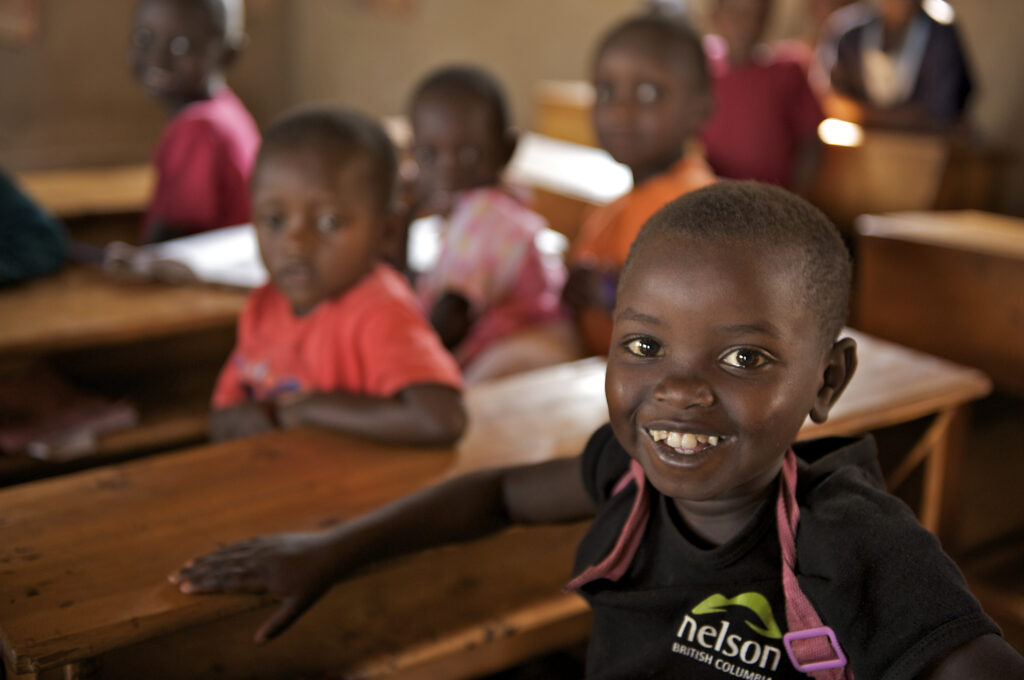Pioneering Initiative Fulfils Early Promise
Giga’s innovative school connectivity pilot in Rwanda has reached a major milestone: Ownership of the internet service contracts to provide school internet access has now been transferred from UNICEF Rwanda to the Government of Rwanda. The transition to full government financed plan demonstrates Rwanda’s commitment to sustaining school connectivity and showcases how lessons learned from innovative financing and clearly defined connectivity standards can inform national programs.
Background: From 63 Schools to an Ethereum-Funded Pilot
Rwanda has been one of the leading pioneers in Giga’s mission to connect schools. In 2019, Giga partnered with the Government of Rwanda to bring broadband internet to 63 schools, including 50 schools in the Eastern Province and 13 public schools that have integrated refugee students. This early collaboration not only connected underserved schools but also helped drive down costs – in some areas achieving a 55 per cent reduction in internet price per Mbps for schools (from ~$20 to $9–14) through aggregated demand and competitive bidding.
Building on that foundation, Giga launched an innovative blockchain pilot in December 2021 together with the Ethereum Foundation, which donated 32 ETH (approximately $43k USD at the time) as seed capital to fund the pilot. A validator node was set up to stake this Ether, and the staking rewards were periodically withdrawn and used to pay for the internet bills for some schools. Staking returns can be compared to interest that is earned on a savings account in return for securing the network.
Over the course of the pilot (mid-2022 through 2024), the staking validator’s rewards were converted to fiat currency and used to cover connectivity costs. This provided a proof of concept for new financing models in education by demonstrating that a one-time crypto donation could turn into a sustained funding stream.
Funding Disbursements During the Pilot
Given the proof of concept demonstrated, and the returns gleaned from staking 32 ETH, if this donation is multiplied several times over – to reach 1,000 ETH for example, the returns would be significant and support even more schools to gain access to the world wide web.
Government Perspective: Embracing Innovation in Education
The Rwanda team and partners are optimistic about the potential of the pilot initiative once the regulatory framework for Rwanda is in place. “The staking pilot in Rwanda gave us a real glimpse into the future of development finance. It’s incredible to see how a single crypto donation can support schools by creating new opportunities for children’s education. We’ve opened the door to new ways of supporting education systems, and hope that what we’ve learned could benefit children across the world.” Shared Lieke van de Wiel, UNICEF Rwanda Representative.
The government’s push for schools’ connectivity was aided by the Giga pilot project – evidenced by the government’s willingness to assume responsibility of managing the contract with the ISP to ensure that the connected schools continue to be provided with high-speed internet.
UNICEF continues to engage with the government to scale up proven, affordable, and sustainable connectivity financing solutions such as the Giga pilot project, with an aim of connecting all schools in Rwanda, especially those in underserved, hard-to-reach areas, to the internet.
Regulatory Lessons: The Need for Clear Crypto Frameworks
One of the key takeaways from the Rwanda pilot is the importance of a supportive regulatory environment for cryptocurrency-based innovations. This pilot demonstrated that crypto can be a force for good, delivering tangible benefits in a transparent manner. However, current regulatory limitations meant the project had to navigate within certain constraints.
Broad adoption of similar models will require clear policies that enable governments and organizations to directly receive and use cryptocurrency for social outcomes. If laws allowed, the entire flow of funds – from donor to Giga to the service provider – could have been done on-chain, avoiding intermediate conversions. That would simplify the process and reduce friction while ensuring end-to-end transparency for auditability.
Next Steps: Sustainable Funding Through Impact Staking
While the pilot phase in Rwanda has concluded, the journey has only begun. The 32 ETH provided by the Ethereum Foundation will continue earning yield for schools globally by contributing to Giga’s new Ethereum staking initiative .
This new initiative allows anyone to stake ETH and donate the staking returns to Giga, ensuring long-term funding for school connectivity worldwide.

